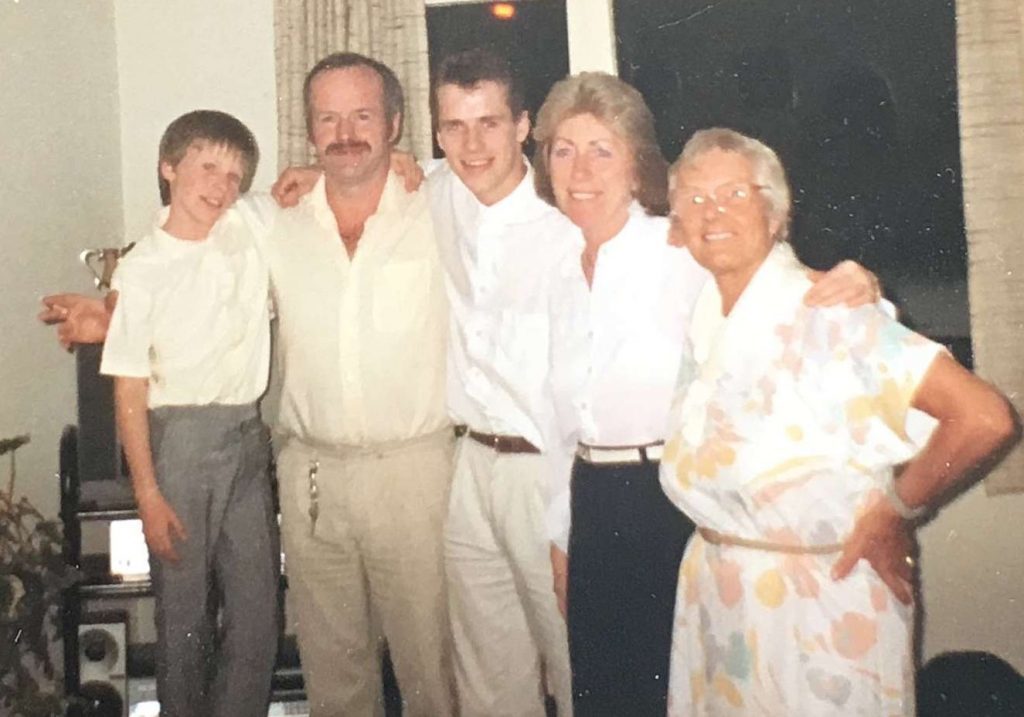
The reality of the devastating impact a major Incident has on friends and families, and the vast reach it has into the community and into the future is immeasurable.
The focus always seems to be on the ‘thing’ be it an oil rig, a helicopter or a football stadium, and what happened to ‘it’.
The people are forgotten about. I don’t believe this is at-all deliberate, but more a collective inability to imagine, or deal with trying to imagine how they would cope in this situation.
This means well wishing people find it virtually impossible to empathise with those directly affected.
I’m not saying they are cold, far from it, there is much sympathy, but very little in the way of understanding, which is, of course, understandable.
I think this, among other things, is what families of victims find so difficult to deal with.
Surprisingly and bizarrely and despite the huge number of people trying to support you, you find yourself dealing with it-all completely and utterly alone.
The overwhelming barrage and intensity of negative emotions are indescribable, which makes them incredibly difficult to communicate.
The understanding you have of yourself and the world around you breaks down and many different uncontrollable feelings and emotions rush in and out of your being, but they are also all there at once.
This experience numbs you as a person and you find you have to try to build yourself into someone again.
This is not easy for most and takes a very long time to achieve.
Unfortunately some never manage it and they stay stuck in limbo unable to ever move on, they are the real victims of a major incident.
Offshore safety has grown into a weird and fantastical place.
We are drowning in paperwork and many find the reason for that paperwork (to focus the mind on the hazards of the task) has all but disappeared, and we are now focused on blindly gathering and completing whatever documentation is required so we don’t get into ‘trouble’.
Over the years, and particularly since the Piper Alpha tragedy, paperwork and permit to work systems have been constantly added to, mainly because of knee jerk reactions to incidents that require ‘immediate action’, “let’s add some more paperwork, that’ll definitely prevent the incident happening again”.
Err no, it won’t, in fact you are diluting the entire reason it is there, which is to focus the mind and get people thinking about the hazards of the task at hand, and to identify conflicting work.
Adding to an already overloaded system is clearly not the way forward.
Look at it this way; if there were no system at-all and we were creating a best practice one from scratch, would we create the system we have? I think not!
Some aspects of the current system are good and should be used, let’s not reinvent the wheel here, but there is an awful lot of chaff. We must rein this in before we have another major disaster, which could be caused by the very thing that was put in place to prevent it.
There are numerous articles and training videos that still refer to Piper Alpha, and rightly so. We use phrases like “Lesson Learned” and “We must be sure these men didn’t die for nothing”.
If these statements mean anything to anyone, and I’m sure they do, then we need to simplify and standardise our paperwork systems without delay before paperwork becomes the root cause of yet another tragedy.
Thankfully our industry is full of hard working people who want to engage in the safety of themselves and their colleagues.
These people are having their voices stifled by a thing I call ‘Anti-Safety’.
The practice used to brand someone as ‘Anti-safety’ if they speak out or have a concern or negative opinion about a process or system that is seen to be safety related. Safety must be an open discussion and all voices need to be heard.
If they are not, and the only opinions that seem to matter come from management or the endless stream of safety coaches who seem to parachute in with their out of touch opinions then disappear without a trace, then I fear we are already back in the 70s and 80s and another Piper Alpha is just around the corner.
Think this is an overreaction?! Ask around…
‘Inside-Out’ is a simple concept.
It means using the safety reps, committees and the workforce to drive safety on an installation from the Inside-Out.
These people know everyone and already have the respect and integrity required to involve and engage the right people to influence real change. Doing it this way will get into the blood and change the way people think about themselves and their responsibilities to one another’s families.
Inside-Out will make positive safe behaviour the norm. But, these influential people firstly need to be identified. They’ll also need to be given plenty of solid, hands-on continued support and fit-for-purpose training to build their confidence.
This will empower them to drive the creation of a truly positive safety culture/feeling/environment (whatever your preferred tag is) on every single installation across the North Sea.
I fear if the concept of “Inside-Out” is not adopted, and taken seriously, we run the risk of disengaging a valuable asset that can transform the industry. It’s not too late, so let’s get on with it.
We can achieve this and I want to make it happen, but I can’t do it alone, so who is going to help me?
Read Shane’s memories of the day here.
Recommended for you
